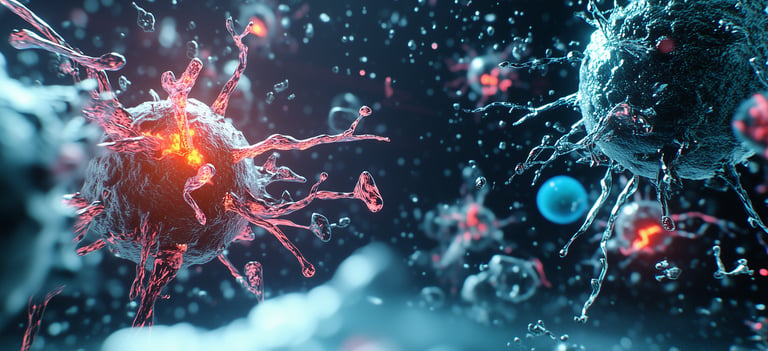Creating Tumor-Destroying Immune Cells
Our custom-designed immunotherapies are engineered to elicit precise and powerful immune responses tailored to each individual. By using specialized peptides, we deliver personalized treatment that enhances the activation of tumor-destroying immune cells, increasing the likelihood of successful therapeutic outcomes.
Nowadays it is widely accepted that malignant cells are recognized by the immune system. Unfortunately, neoplasms still develop when natural immunosurveillance, i.e., the process whereby the immune system controls potentially malignant cells, fails. Many tumor cells typically express so-called “tumor-associated antigens” (TAAs), i.e., antigens that qualitatively or quantitatively differ from those expressed by normal healthy cells of the same type.
These antigens can be harnessed to elicit anticancer immune responses. This goal is achieved by presenting small, rationally designed peptides of these antigens, with an altered immunopeptidome, together with proper immunostimulants. Throughout the past decade, well-designed peptide therapies have been shown to mediate antineoplastic effects in various animal tumor models and also benefical responses in patients.
Identification of suitable and effective TAAs is crucial for the development of the next-generation peptide-based anticancer immunotherapies.
Over the last decades the founders focused efforts on both the identification of suitable so-called tumor rejection antigens, i.e., TAAs that can elicit a specific immune response leading to cancer cell eradication, as well as combinatorial immunostimulatory interventions with superior immune response-guiding activity in patients. Thereby creating immune-enhancing strategies that simultaneously target several TAAs.
Since tumors cell may escape form mono-therapeutic, standalone approaches it is important to apply combinatorial regimes using distinct strategies. Thereby combining different immunotherapies with more than one tumor-destroying intervention, including photodynamic radiotherapy and low dose and immunogenic chemotherapies.
Together these interventions create an altered tumor microenvironment with the release of new immunogenic tumor antigens (called epitope spreading) that can be targeted by newly activated immune cells to generate meaningful clinical benefit for the patient.
Nowadays, great interest is attracted by combinatorial regimens involving other immunostimulatory interventions, including (but not limited to) immunogenic chemotherapeutics, radiotherapy, and immune checkpoint blockers.
Immunotherapies that activate a patient’s own tumor-targeting immune cells


